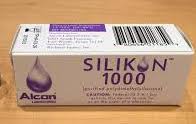The illicit use of injectable silicone for aesthetic purposes has a long history. Once used as a face and body filling material in the 60s, it became apparent a decade or so later that adverse side effects were common consisting of foreign body reactions and permanent deformation of injected sites. It use was subsequently abandoned by mainstream plastic surgeons and has largely been so since.

But there has always been an underground or black market use of silicone that goes way beyond that of using limited amounts of the medical product Silikon 1000. Done outside of traditional medical environments by injectors of dubious backgrounds and using non-medical grade silicon oil products, those seeking all forms of cheap and quick facial and body augmentations fall prey to these quick buck scam artists. Those who can least afford injection complications often fall victim to a ‘treatment’ that is most likely to cause them. This has become a growing trend which has been propagated by the increased demand for aesthetic buttock augmentations.
As a result the FDA has issued a warning about the illegal use of injecting silicone for body contouring. This is particularly relevant with the many false claims made by some providers indicating or suggesting that silicone is an FDA-approved soft tissue for enhancing the size of buttocks, breasts and hips. Spurned by the increasing number of patients reporting serious complications and permanent deformities from unlicensed and non-medical injectors, sometimes even using industrial-grade silicone, the FDA was compelled to issue this safety alert.
One would assume that getting an injectable treatment of any kind in a hotel room or someone’s house would raise a flag of suspicion about its medical safety. But the desire for an inexpensive quick fix to one’s aesthetic desires appears to be an enticement for some that clouds their judgment.
Dr. Barry Eppley
Indianapolis, Indiana


